Richard Norris from the Grid said something recently that I found really interesting. Throughout his long musical career, he’d constantly worried about things being authentic. But now he realised that ultimately it was not authenticity that mattered - it was whether things were genuine.
If I had to define the difference, I’d say that authentic things were true to the external world that they emerged from. Genuine things, in contrast, are true internally. They are a complete and uncompromised expression of the implulse that formed them. They may or may not fit with the culture of the day, and hence they may or may not make any sense commercially, but they are the things that last. They are what people remember.
While this is a great insight to apply to music, it strikes me that it will also be useful for navigating the AI-plagued world ahead. I’ve tried to avoid going on about AI in this newsletter because I wrote about it five years ago in The Future Starts Here. The tech has developed incredibly since then, but I still think that chapter holds up okay - especially the stuff about awareness. AI doesn’t know that it exists and it doesn’t know that we exist, so be wary of the endless think pieces that suggest otherwise.
History gives many examples of new technology upending existing industries - such as the impact of streaming on music, or the impact of smartphones on camera manufacturers. After such a shock, it can take many years for a new, stable business model to arrive. AI will create shocks like those going off across countless industries simultaneously, all impacting on each other in ways that will produce futher turbulence. An understanding of chaos theory, I suspect, is going to pretty invaluable to make sense of it all. At this point, we can’t judge in what way this will be good or bad. As I see it, the consequences of what’s coming from here on in are basically unknowable.
What we can say, however, is that culturally, there is going to be a lot of crap out there. Those who want to monetise your finite supply of attention have already started using AI to churn out articles, images, songs, social media posts, podcasts etc., often algorithmically refined to exploit your pychological biases. It’s not AI we have to worry about, but the use of AI in a capitalist system.
The evolution of video games gives a good illustration as to why AI tasked with gaining our attention isn’t good. In order to really enjoy classic games like Super Mario Kart or Street Fighter, you had to get good at them. Those games could be horribly addictive, but only after you had acquired sufficent skill to engage with them on quite a deep level. A modern mobile game like Candy Crush, in contrast, is engineered to be psychologically addictive from the moment you pick it up. You can be terrible at it, and still be unable to stop. In terms of engagement metrics this makes it a huge success, yet time spent on Candy Crush feels so much emptier than time spent playing Mario Kart skillfully.
We’ve been living through a period of cultural abundance. Whatever you want - in terms of music, television or film - is pretty much available, whenever you want. This has left us more jaded than inspired. It has been a little insight into that particular emptiness that defines the lives of the rich, after the ability to acquire things has mutated into the chore of endless stuff to deal with.
What we crave, in this AI-saturated cultural landscape, are things that are genuine, as that word is defined above. These are the things that enrich us, and which intuitively feel like time well spent. This is not to suggest, however, that all AI stuff is crap and it’s the non-AI stuff that matters. This technology is a tool like any other, and as such it can be used with different motivations and levels of creativity.
To give an example, my Godless pal Shardcore has recently used AI to produce videos for his music project Drass. In the video below, the unique Goth doll-children are all AI generated. So much AI-generated stuff leaves me cold, yet I find this video fresh and striking. There is something about the way the number of those creepy little things keeps increasing, while they simply stare directly at you, refusing to explain themselves, that I really like. I would class that imagery as ‘genuine’ - to my eyes, at least. Unsettling and horrible, admitedly, but genuine nonetheless. Expect some advertising agency to rip it off within the year.
When it comes to identifying the genuine in AI, you need to look for the original creative impulse. For example, now that James Earl Jones is in his nineties, he no longer voices the character of Darth Vader. Rather than recast, Lucasfilm use an AI version of his younger voice. This will seem especially strange once Jones is no longer with us, and his estate are still receiving payment for his ‘services’. On one level, you could claim that this is admirable because it is more authentic than recasting. Yet the character of Darth Vader exists to tell the story of the fall of Anakin Skywalker. Wheeling him out again and again and putting him in other stories because of his good brand recognition is never going to be genuine.
Compare this with the immortal ABBAtars, in which a digital version of ABBA in their 70s peak perform night after night forevermore. Because songs like ‘Thank You For The Music’ celebrate the eternal joy those songs give, the decision to continue with digital performances feels right. The music being heard is more important than the band, according to that song anyway. Hence virtual ABBA feels genuine in a way that, for example, a digital performance by The Smiths wouldn’t.
It’s the impulses and ideas behind the work, then, that matters. Fortunately we’re quite good at recognising stuff that seems genuine, when we have time to pay attention. The problem is these things are submerged by a flood of attention hungry digital noise, and that we’ll expend so much energy filtering out the crap that we’ll overlook it. Here, then, is one job that AI will not be able to do for us - find the genuine, share it, celebrate it - and save it from the digital landfill.
THE KLF TENTH ANNIVERSARY EDITION
In about a month’s time, on July 20th, my KLF book is being issued in a new hardback edition. This will include 13,000 words of footnotes, in which I look back at the book a decade after writing it and try and make some sense of it. If this sounds like something you should have on your shelves, now’s the perfect time to click here and pre-order.
I’m only doing one event to promote this book, but it’s going to be quite special. On July 25th I’ll be in conversation with the unutterably brilliant comedian Andrew O’Neill, at the Walthamstow Rock n’ Roll Book Club. Expect digressions, is all I can say. Tickets are available here, and if you already know Andrew’s work, then their Patreon is well worth your attention.
To further celebrate this release, the limited edition T-shirt company 1 in 100 will produce a T-shirt inspired by it. It’s the book cover from a parallel universe, in which we went with a different title.
There will only be a hundred of these shirts, all individually numbered, and when they’re gone, they’re gone. Naturally, there’s a choice of colour variant:
With the vibrant yellow and shocking pink colours, the prominent use of the word ‘fuckers’, and a sheep staring deep into your soul, these are incredibly versatile garments suitable for every social engagement. 1 in 100 limited shirts can sell out pretty quickly, so if you want to have a good chance of getting one consider signing up for their mailing list. You’ll then be notified as soon as they go on sale - sometime in mid July.
Until then!
jhx




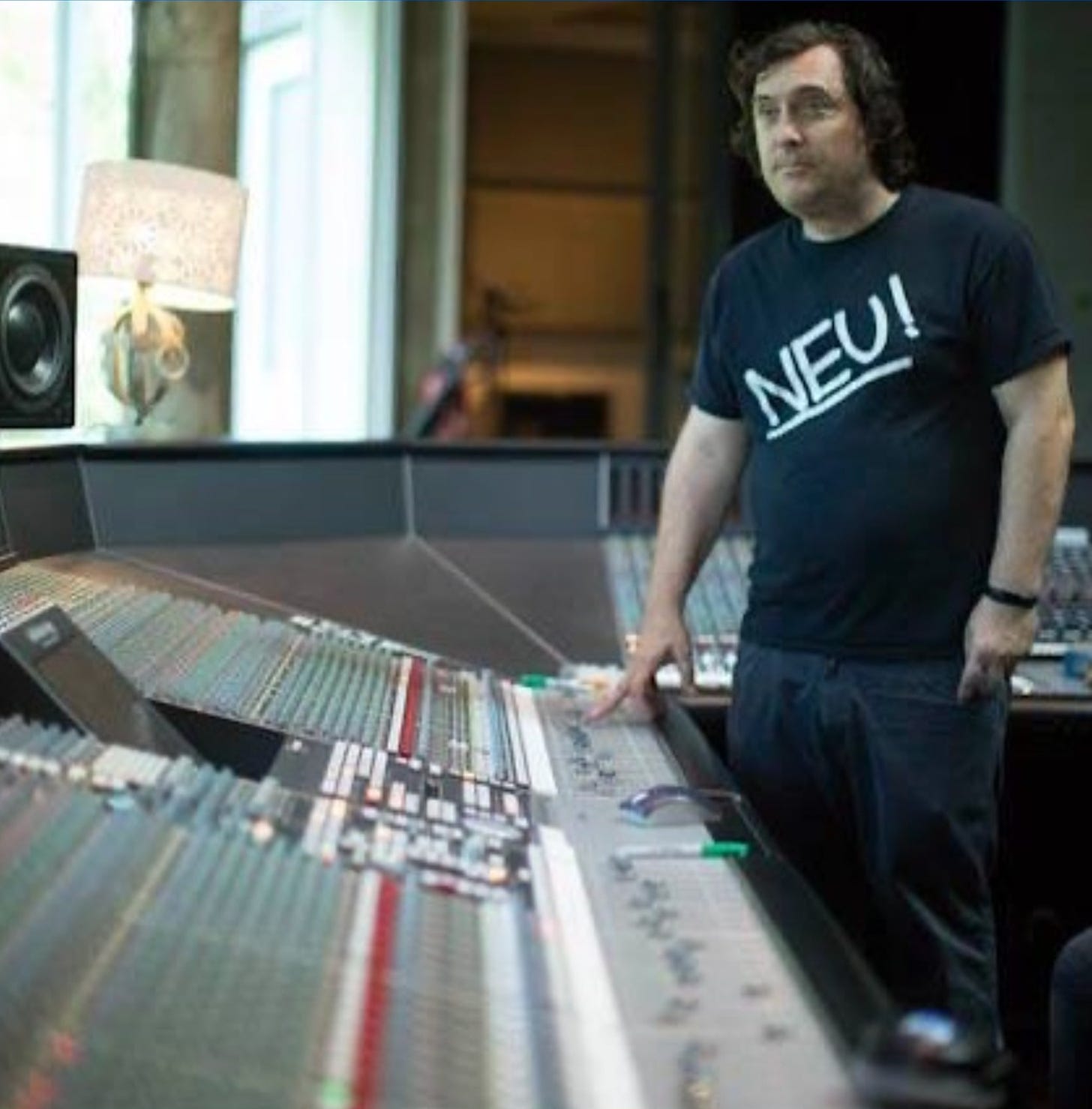
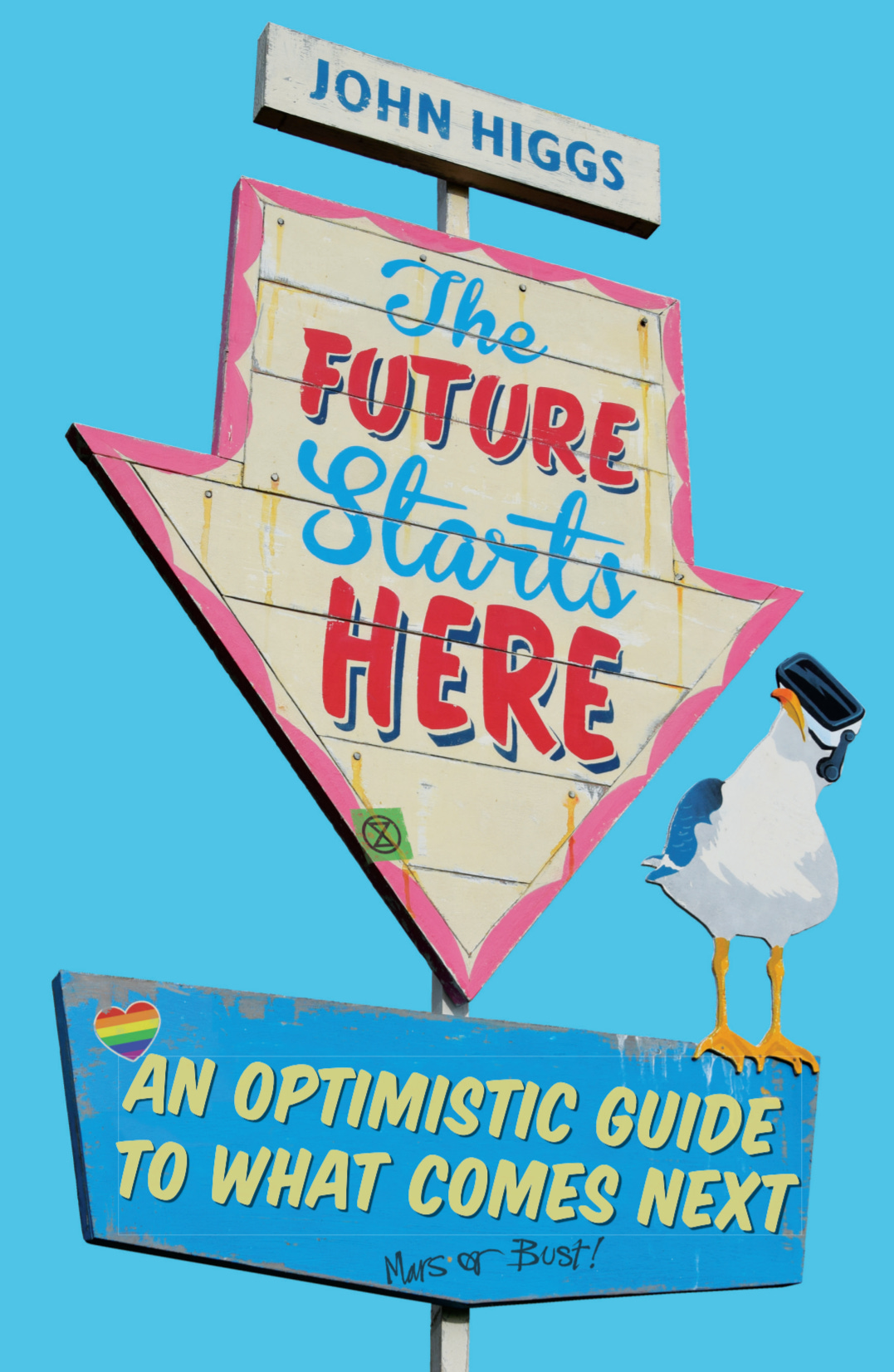



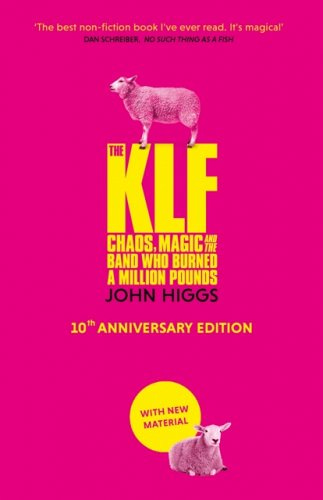
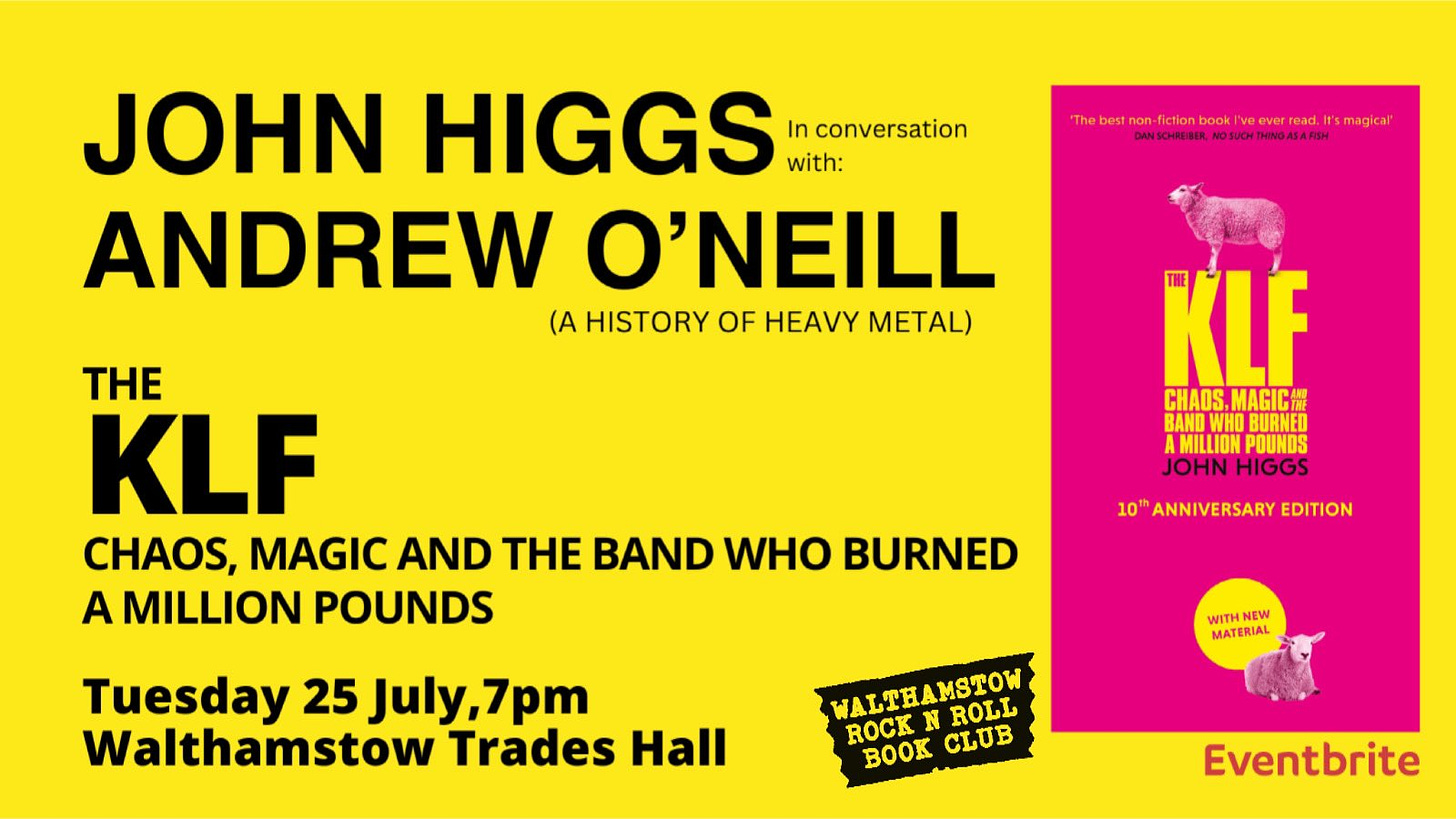
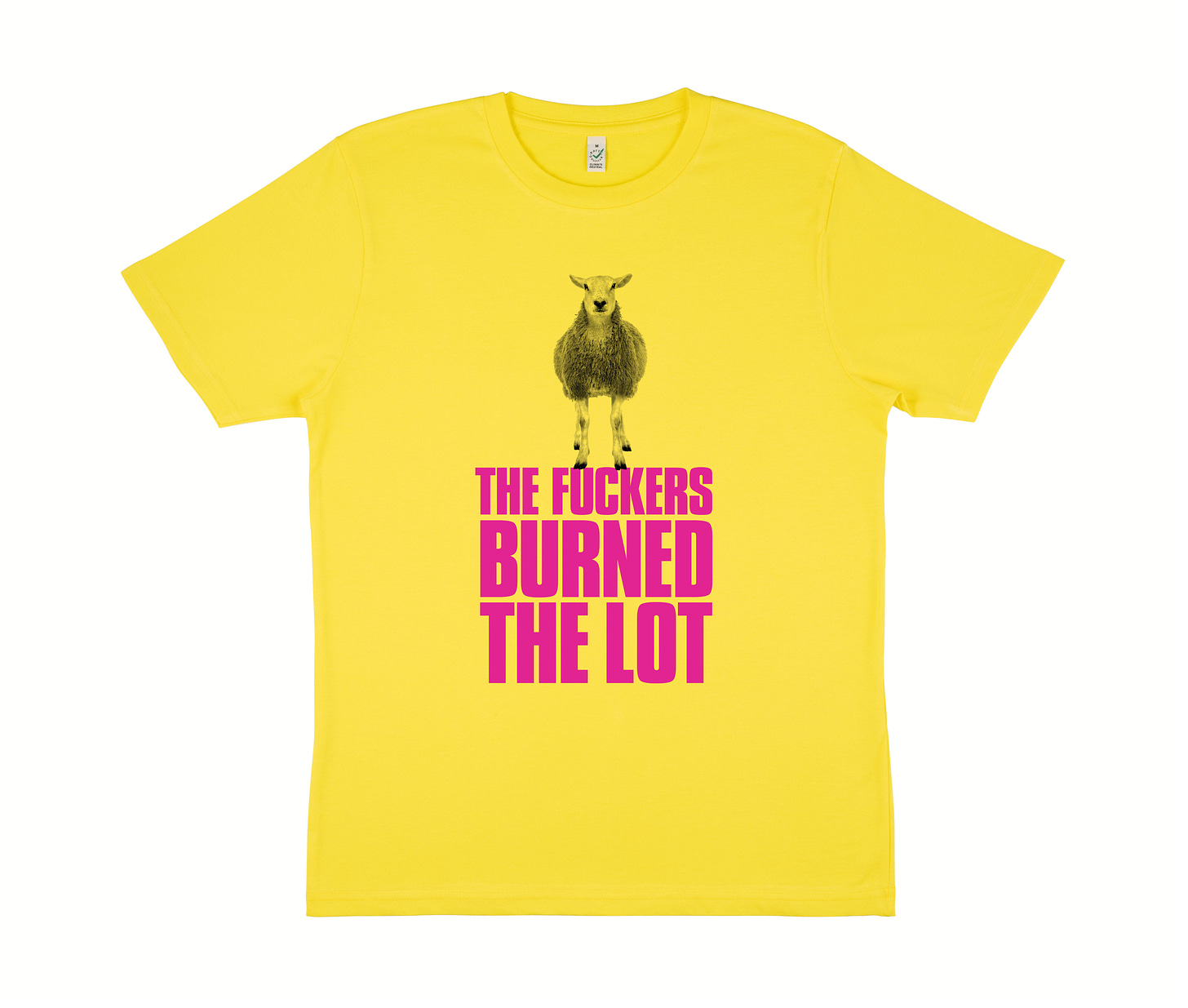

"AI doesn’t know that it exists and it doesn’t know that we exist, so be wary of the endless think pieces that suggest otherwise."
+
"It’s not AI we have to worry about, but the use of AI in a capitalist system."
Thanks for these John. I think these quotes will resonate on and on.....
John Higgs! I'm so happy to find you on here! I'm halfway through The KLF tenth anniversary edition, which I ordered from the library after reading William Blake vs. The World (which I discussed extensively in this post: https://rosiewhinray.substack.com/p/beach-combing-journal-air-floating ).
The footnotes are excellent! I love footnotes in general, but in the KLF book they're like hot sauce, making everything more tasty.
P.S. I discovered your 'stack today: the very day you had posted. I then went to the archived one numbered the same as my age- this one.
Also! A Brighton-based friend I've never met in real life sent me a package of cool English shit a few weeks back (leaflets from stone circles, pipe stems from the Thames, stones from Brighton Beach, etc.) which also included a vintage map (Bartholomew's Revised Half-Inch Series) of Cape Wrath. At the time I was mystified, but things being what they are I pinned it up on the wall today. In fact, the colours of it are very harmonious with my decor.